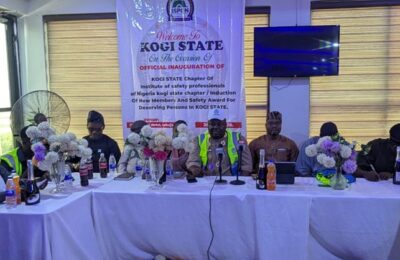Few years ago, Dr Oby Ezekwesili the former Minister of Education declared during a Presidential forum on education reform that “by 2020 Nigeria may have a significant population of highly skilled trained criminals if nothing is done today”. This damning verdict stemmed out of the fact that out of twenty million pupils who are currently in primary schools, only six million (30%) will get to high schools, and out of one million yearly applicants for university education, only 150,000 (15%)gain admission. Out of these, about 100,000 graduate yearly, with less than 30,000 of them getting into regular employment. At this rates and lower rates from the past, our societies are increasingly been saturated with idle youths who are daily exposed to vulgar lyrics from the music industry, make believe, get rich quick, and glorification of violent demeanor from videos.
We are in 2013 and there is no sign of economic improvement, yet the number of unemployed, underemployed and unemployable youths keep soaring, pointing as it is to doomsday. The question to ask ourselves is this, ‘are we the only people to ever be in such a dire situation? No! A Look at China over twenty years ago under the leadership of President Deng revealed that China was confronted with an army of frustrated unemployed youths. Deng, after a thorough analysis of global trends particularly in tradable skills decided to focus on University education with emphasis on science and Information technology (IT). Today China produces over 50% motorcycles and over 30% of personal computers globally. The country churns out 350,000 engineering and computer specialists annually, registering three times more patent applications than the US; just recently their astronauts returned to earth from the moon and not too long ago too, Nigeria obtained over a billion dollar loan from China for infrastructural development.
In the 1960s Singapore and Nigeria used to be at par, with each having a $300 per capital income. But today, the gap in standard of living between the two countries is so wide, while Nigeria have a per capital income of $1000, Singapore have $35,000. Singaporean Prime Minister Lee Hsien Loong once declared, ‘there will be no barrier to knowledge, information and lifelong learning. Our Universities maintain open access, but rigorous academic standard, our Polytechnics impart professional expertise through a practice based curriculum, and our institute of technical education equips students with hands-on technical skills and critical thinking habits. We are also investing in upgrading the skills of the workforce, keeping older workers current and employable. On an intelligent Island, every pair of hands has to be a pair of thinking hands. None should be hewers of wood or drawers of waters’.
Nigeria was far better than Costa Rica in the 60s, but today the country has successfully transited from a banana republic to a regional IT power hub just over a period of ten consistent years of planning and execution. Arias, a Nobel Laureate and former President of Costa Rica declared thus, ‘in 1998, while I was President, our government installed computers in elementary schools. Since then the program has reached over 1.5 million students, more than half of whom live in underprivileged areas. Exactly ten years after the first computer was installed, Intel, opened a $500 million micro chip plant in San Jose. Among the attraction Intel cited was the availability of an educated workforce. Today, Costa Rica’s 12% GDP comes from software sales and is the third most competitive outsourcing destination in the world after China and India vying for a piece of the global IT outsourcing market worth about $50 billion.
The major point of focus from the brief narrations above is the process of transformation from poverty which I believe is the genuine empowerment. The so called empowerment structure whereby a few thousands of naira is doled out to the youths per month for doing nothing is welfarism at its heights and is not capable of transforming lives; rather it relieves them of temporary lack by offering money to spend on their cravings. Poverty alleviation is not giving people fish to eat but teaching them how to catch fish for themselves. So many development plans have failed in the past, so many visions have failed too and many more will still fail until we have leaders in the mould of Chinese Deng, Singaporean Lee and Costa Rican Arial, true statesmen who sincerely have the future in mind.
On the local scene, as part of the awareness of the inherent opportunities in Information Technology, Mopamuro Local Government recently sponsored 50 youths to take part in the National Institute of Information Technology (NIIT) scholarship examination. This can be seen as the beginning of proactive steps towards stemming the tide of unemployment and consequently a means toward genuine poverty alleviation, this is because without any doubt, information technology is the hottest cake in the global economy today; for instance IBM has a staff strength of 355,000, Verizon 242,000, AT&T ,302,000, Dell alone has more employees on its payroll than all Nigerian banks combined and HP makes more money selling IT than Nigeria makes from oil sales. The telephony wireless technology is a business of $350 billion market requiring about 140,000 software applications for support and tradable skills in such sector will definitely enhance our youths.
In conclusion, I still hold the opinion that welfare government takes away a young man’s strongest resolve to live and survive independently, it destroys the will for self development and that exactly is what the ‘babake and olori finally’ kind of politics have done to us. Hence, the key to genuine empowerment across Okun land has been tradable technical and administrative skills and that is where our future lies, else we’ll deceive ourselves for a very long time. I do not write this to write off other significant sectors, but to diversify from another strongly held point of environmental or natural resource exploitation particularly the agro sector, the problem with most youths on this is the inability to delay gratifications and reinvest in it, but with proper enlightenment and extension services if possible a lot lies in stock for our people in the agro sector. I hold a very strong opinion that empowerment is in investment in skill acquisition (formal and informal), and tapping into the advantages our environments display across Okun land and not in doling out cash for temporary satisfaction to our youths.
Elere Samuel, public affairs analyst, writer and poet holds an M sc in Humanitarian studies from University of Ibadan and is the leader of Mopamuro Posterity Project.



